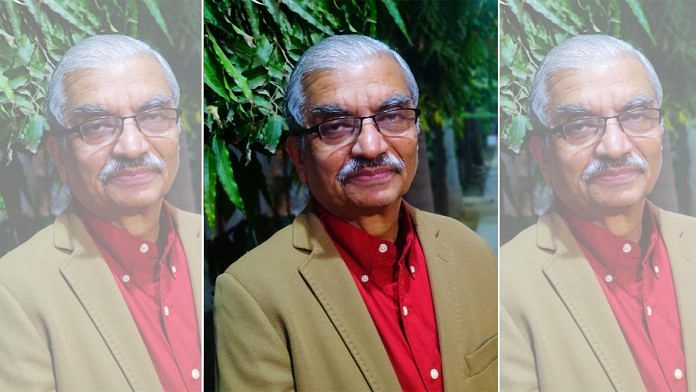New Delhi: The Narendra Modi government will increase the pace of Covid vaccination with an aim to eventually vaccinate 70 lakh people everyday, said a senior official from the ICMR’s national task force for Covid-19.
In an interview to ThePrint, Dr N.K. Arora, head of the operations research group in the task force, noted that the present pace of vaccination was deliberately kept low to understand the “hiccups” of the system.
“India’s Covid-19 vaccination drive is a mega event. It’s like a marathon race where you don’t start with the highest speed but you gradually pick up. In fact, the pace of vaccination was deliberately kept low till now,” Arora told ThePrint.
India’s Covid vaccination drive for healthcare workers began on 16 January after two vaccines — Bharat Biotech’s Covaxin and Serum Institute India’s Covishield — were approved earlier that month. However, the slow pace of vaccination has drawn criticism from all quarters. Over 8.29 million vaccinations have been carried out in the country so far.
According to Arora, though, the pace of inoculation is going to pick up soon.
“Till now, we are inoculating around 5 lakh people daily which soon will be jacked up to 50-70 lakh beneficiaries everyday. To complete the national vaccination target, the aim is to reach 50 to 70 lakh new beneficiaries per day and India has the capacity to do that,” he said.
He further noted that the country aims to complete the vaccination of 30 crore people in the priority groups by June-July.
The government has so far identified four priority groups for Covid vaccination. The first two are healthcare providers and workers in healthcare settings (government and private) and frontline workers. The other two are those aged over 50 years, and younger people with comorbidities.
For this purpose, the government is also planning to set up several new vaccination centres.
“In the next 2 to 4 weeks, you will see several thousands of new immunisation centres coming up. The country has a total capacity to establish 50,000 to one lakh immunisation centres which will be increased as we go ahead,” Arora told ThePrint.
India began its vaccination drive with 3,000 immunisation centres and till Monday there were approximately 10,000 active centres.
“We have taken cautious steps till now to understand the hiccups and now the programme will scale up based on the initial learnings,” he said, adding that India has diverse experience in immunisation considering it “inoculates 17 crore children every year under pulse polio vaccination drive, seven times in a year”.
Also read: SC to hear plea for including judges, judicial staff in priority category for Covid vaccine
Vaccine hesitancy was expected
According to Arora, who is also the executive director of New Delhi-based health NGO INCLEN Trust, vaccine hesitancy had been anticipated by the government since this was the first time “adult immunisation” was being undertaken in the country.
“Adult immunisation is a challenge across the globe. For instance: In the US, where adult vaccines have been given since the last two decades, only 50 per cent people have received the vaccines till now.”
The public health official also conceded that there were widespread concerns about Covaxin, which led to hesitancy. The vaccine, which was developed by Bharat Biotech in collaboration with the ICMR, has yet to release its efficacy data.
“As soon as the data will become available, we expect the data to be made in public domain. Currently, approximately 10 per cent of beneficiaries are getting Covaxin, rest are receiving Covishield,” said Arora.
However, he added, the hesitancy to take a new vaccine was expected and it is a global phenomenon. “Even during the SARS 2009-10 outbreak, it happened. The healthcare workers are conservative, worried not only about themselves but about their patients as well.”
Arora added: “Almost 65 per cent of health providers have been immunised so far, they will be vaccine advocates and encourage the rest of the community as we move forward with a new group of beneficiaries.”
Also read: Israel vaccinates most per million, India ranks 10th — how countries with high Covid load fare
Private sector roll out of vaccines
While India is looking to accelerate the pace of inoculation, it is still not ready to allow vaccines in the private market.
In a press briefing Monday, Union Health Minister Dr Harsh Vardhan said that no final decision had been taken on vaccine roll out in the private market and it will take time for them to be available there.
According to Arora, availability of vaccines as well as the need to develop a strategy to keep a check on the retail space are contributing to the delay.
“We need to wait for a private roll out of the vaccines for some more time. Right now, the availability of vaccines could be an issue and we need to finish, at least, the priority groups first,” he said.
“Also, there will be a lot of imbalances once the vaccine is rolled out in the private market for which strategies need to be in place in advance,” added Arora.
Also read: About 18-19 vaccine candidates against Covid-19 in pipeline, says Harsh Vardhan



